MercoPress. South Atlantic News Agency
Environment
-
Tuesday, December 18th 2018 - 09:13 UTC
Antarctica wildlife exposed to human linked pathogens, including antibiotic resistant microbes
Infectious diseases are commonly passed along from humans to animals, but a new study is the first to document human-linked pathogens on the isolated continent of Antarctica. The researchers discovered antibiotic-resistant microbes and other bacterial strains in bird poop, raising new concerns about the health of Antarctic bird colonies.
-
Wednesday, December 12th 2018 - 18:55 UTC
Environmentalists seek legal injunction to stop pollution of Lake Nahuel Huapi in Bariloche
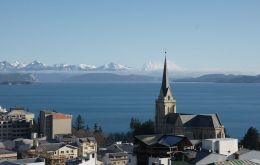
Lake Nahuel Huapi has been receiving around 75 million litres of untreated sewage for the past three days due to the maintenance and removal of materials in the Elevator Station of the Wastewater Treatment Plant in Bariloche and environmentalist organisations have already filed for an amparo remedy to stop the spill.
-
Wednesday, December 12th 2018 - 08:29 UTC
Brazil's future environment minister favors remaining in Paris Agreement but with country autonomy

Brazil’s future environment minister under President-elect Jair Bolsonaro said that the country should stay in the Paris Agreement on climate change, but the world must also respect its autonomy to set its environmental policies.
-
Tuesday, December 11th 2018 - 09:08 UTC
Argentina creates a 395.000 acres marshlands park; land donated by the Tompkins Conservation
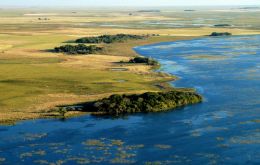
A new national park in Argentina that will help protect the country’s incredible wetlands, forests and grasslands well into the future, as well as putting a new part of the country on travelers’ maps has been given the green light by the Argentine government.
-
Monday, December 10th 2018 - 09:41 UTC
French military join WWF France to combat climate change as a “national security threat”

France’s military has teamed up with an environmental non-profit organization for the first time to study the threat of climate change where the country is at war, a representative of the green group said. So far, WWF France and the Ecole de Guerre, the top French military academy, have been jointly promoting their view that climate change is a national security threat.
-
Monday, December 10th 2018 - 05:38 UTC
Brazil incoming energy minister favors nuclear and wind power; “hydro has reached its limit”

Brazil’s incoming mines and energy minister, Bento Albuquerque, supports more nuclear and wind power development to diversify the country’s energy matrix, while saying hydropower had reached its limit, newspaper Folha de S.Paulo reported.
-
Saturday, December 8th 2018 - 09:30 UTC
Brazil environment regulator denies license to drill near mouth of the Amazon
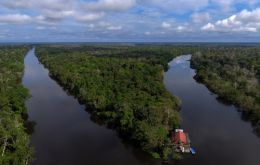
Brazil's environmental regulator on Friday denied French oil giant Total a license to drill for crude in five blocks near the mouth of the Amazon river. Regulatory agency Ibama said the license was denied “due to a set of technical problems” identified during the application process.
-
Saturday, December 8th 2018 - 09:04 UTC
South Georgia wildlife on five National Geographic “Resurrection Island” episodes
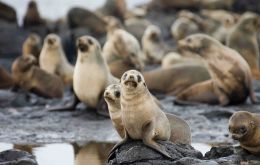
National Geographic has produced a series of 5 short films about South Georgia wildlife, according to South Georgia's Newsletter.
-
Saturday, December 8th 2018 - 08:54 UTC
Whales watching and tracking with high resolution satellite imagery

Scientists have used detailed high-resolution satellite images provided by Maxar Technologies’ DigitalGlobe, to detect, count and describe four different species of whales. Reported this week in the journal Marine Mammal Science, this study is a big step towards developing a cost-effective method to study whales in remote and inaccessible places, that will help scientists to monitor population changes and understand their behavior.
-
Thursday, December 6th 2018 - 19:17 UTC
Bolsonaro's announcements earned Brazil a “fossil of the day” at pessimism-ridden UN climate conference
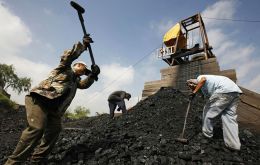
Environmental activists have labelled Brazil and Saudi Arabia “fossils of the day” during the United Nations two-week climate conference in Katowice, Poland.
